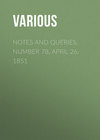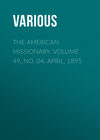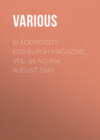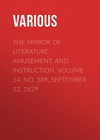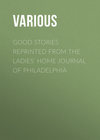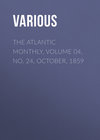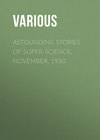Czytaj książkę: «Notes and Queries, Number 78, April 26, 1851», strona 2
SHAKSPEARE AND FLETCHER
I feel greatly obliged to your correspondent C. B. for the attention he has bestowed on the question of Fletcher's connexion with Henry VIII., as it is only through the concurrent judgments of those who think the subject worthy of their full and impartial consideration, that we can hope to arrive at the truth. His remarks (Vol. iii., p. 190.) are the more valuable, as they coincide with a doubt in my own mind, which has, to a great extent, ripened since I last communicated with you on the subject; and, indeed, I have no need to hesitate in saying, that I had more difficulty in coming to a conclusion with regard to the scene (Act III. Sc. 2.) in which the passages occur quoted by C. B., than with any other scene in the whole play. The suggestions, that Shakspeare might have touched scenes of which the mass had been written by Fletcher, is a point which I had not overlooked, and which indeed, to some extent, might be said to follow from the view I took of the relation of Shakspeare and Fletcher as master and scholar. Yet this suggestion is especially valuable regarding this scene, and may account for that which, without it, is not so easily explained.
If, however, there be any lurking notion in your correspondent's mind, that the scene in Antony and Cleopatra (Act III. Sc. 1) referred to by X. Z. (Vol. iii., p. 139.) is, judging from certain coincidences of expression, an interpolation, and not by Shakspeare, I beg at once to be allowed to express my total dissent from such a view. Whether, also, there may have been any secondary allusion to some known event of the day, as X. Z. supposes, and as is by no means improbable, I cannot say; but I protest against its being said that the scene referred to is "totally unconnected with what goes before, and what follows." Antony is the hero of the play; and this scene shows the culminating point of Antony's fortunes, when his very successes turn against him.
To return to Henry VIII., the compliment to the Queen, to which your correspondent refers, is, as he very justly observes, brought in in a very forced manner. This, to my mind, is very strong evidence; otherwise I should not think it unworthy of Shakspeare. And it still has to be borne in mind, that he would have had to accommodate his characters and circumstances to the views of another writer. Shakspeare's spirit was too catholic, too universal, to have allowed, in a work entirely his own, even his Wolsey to have made use of the term "a spleeny Lutheran;" yet neither in the passage in which this expression occurs, nor in the one above referred to, is the versification characteristic of Fletcher. For my own part, however, I cannot recognise Shakspeare's spirit in this antagonism of creeds, which is, perhaps, even more strongly displayed in the prophetic speech of Cranmer's in the last scene, wherein he says, "God shall be truly known!" It may be said, that in both these instances the expressions are true to the characters of Wolsey and Cranmer. It may be so; for both are wanting in that ideal elevation which Shakspeare never fails to give. That, with this reservation, he becomes the mouth-piece of each character, is most true; and a curious instance of the writer's utter forgetfulness of his assumed character of contemporary with the events he is relating, occurring in Act. IV. Sc. 2 where Griffiths says—
"He was most princely: ever witness for him
Those twins of learning, that he rais'd in you,
Ipswich and Oxford! one of which fell with him,
Unwilling to outlive the good that did it;
The other, though unfinish'd, yet so famous,
So excellent in art, and still so rising,"—
has no parallel in Shakspeare's works. To John Fletcher, indeed, at the close of the reign of Queen Elizabeth, these things were known; but scarcely to the attendant of Queen Katherine, who has but just narrated the circumstances, then newly happened, of Wolsey's fall. On maturer consideration, then, I am inclined to think that the whole of the scene (Act III. Sc. 2.) to which your correspondent refers, was originally written by Fletcher, although, as it now stands, it is strongly marked by the hand of Shakspeare. In the same category, also, I am inclined to place Scenes 3. and 4. of Act II. It will be observed that these changes are not inconsistent with the view I had previously taken; the effect being merely, that I am inclined to ascribe a little more than in the first instance to the hitherto unsuspected participator in the work. I am not sure, too, that I shall not be coming nearer to Mr. Spedding; as, if I am not mistaken, it is in some of these scenes that he imagines he detects "a third hand;" a theory which, though I do not adopt, I certainly have not confidence enough to reject altogether. But this view affects so very small a portion of the play, that it is of very little consequence.
Samuel Hickson.
ILLUSTRATIONS OF TENNYSON
That great poets are sometimes obscure, needs no proof. That the greatest poets will necessarily be so to the ordinary reader, seems to me equally indisputable.
Not without effort can one enter into the spontaneous thought of another, or even of himself in another mood. How much more when that other is distinguished from his fellows by the greatness and singularity of his thoughts, and by the extreme subtilty of their connecting links. Obscurity is not a blemish but an excellence, if the pains of seeking are more than compensated by the pleasures of finding, the luxury of μαθησις, where the concentrated energy of a passage, when once understood, gives it a hold on the imagination and memory such as were ill sacrificed to more diluted clearness.
Grandis præfatio tenui incepto—a sort of apology to Tennyson for implying that he needs illustration. Some time ago I made a few notes on particular passages in Locksley Hall, which I now enclose. Some of them are, I dare say, superfluous—some, possibly, erroneous. If so, they will stand a fair chance of being corrected in your valuable publication.
By the bye, if a "Notes and Queries" had existed in the days of Æschylus, we might have been saved from many a recourse to "corrupt text" and "lacunæ admodum deflendæ."
Notes on Locksley Hall
Stanza 2. "Dreary gleams:" in apposition with "curlews." I know the construction of this line has puzzled a good many readers.
Stanza 23. "Yet it shall be." Yet "decline" thou certainly wilt.
Stanza 28. "He will answer," &c. With an oath, it may be—at the least with a coarse rebuff.
Stanza 29. "The heart's disgrace." The disgrace, the injury, and degradation the heart has suffered—its prostitution to a mercenary service by a marriage of interest.
Stanza 34. "Never." Alas! I never can.
Stanza 35. "In division of the records of the mind." In dividing my recollections of her into two groups, and erasing the one.
Stanza 38. "The poet is" (as I think has been already pointed out) Dante.
Stanza 40. "He hunts," &c. He—thy husband.
Stanza 42. "Never, never," &c. Never again! (joys never to return) sung by the ghosts of years departed.
Stanza 51. "I have but an angry fancy"—my only qualification.
Stanza 53. "But the jingling of the guinea," &c. But there is no fighting now: the nations get over their quarrels in another way—by the jingling of the guinea, instead of the clang of arms.
Stanzas 54. "Mother-age."; 93. "Mother-age, for mine I know not."
This mother-age is a great difficulty. At first I took it for the past of history, but now understand by it the past of his own life, at least its earliest and brightest period—that age which had been as a mother, the only mother he ever knew.
Stanza 70. "Youthful joys." The bright hopes of his youth. (?)
Stanza 75. "Blinder motions," Less rational, less well-guided emotions.
Stanza 91. "The distance." The distant future, the "good time coming."
There are some lines in In Memoriam (I have not the book at hand, but any reader thereof will instantly recollect them), which indicate Tennyson's acquaintance with and appreciation of Jeremy Taylor, who thus expresses the thoughts of the "wild fellow in Petronius," suggested by the sight of a floating corpse.
"That peradventure this man's wife, in some part of the Continent, safe and warm, looks next month for the good man's return or, it may be, his son knows nothing of the tempest: or his father thinks of that affectionate kiss which is still warm upon the good old man's cheek ever since he took a kind farewell; and he weeps with joy to think how blessed he shall be when his beloved boy returns into the circle of his father's arms."—Holy Dying.
Compare with "Sure never moon to evening," &c., in the same poem, and I think the same place:
"Nec nox ulla diem, neque noctem aurora secuta est,
Quæ non audierit mistos vagitibus ægris
Ploratus mortis comites, et funeris atri."
—Lucretius, ii. 579.
G. P.
FOLK LORE
Sacramental Wine (Vol. iii., p. 179.).—From a note by Mr. Albert Way, on the use of sacramental wine, one would be led to infer that it was recommended on account of some superstitious belief in its superior excellency from having been used in religious worship; but I would suggest that the same reasons which recommend Teynt wine, the kind generally used for the Sacrament, are those which have established for it a reputation in cases of sickness: these are its rich red colour, and sweet and agreeable flavour.
Weakness is popularly supposed to be caused by a thinness and want of blood; if wine be recommended for this, there is a deeply rooted prejudice in favour of red wine because the blood is red, and upon no better principle than that which prescribes the yellow bark of the barberry for the yellow state of jaundice; the nettle, for the nettle-rash; and the navel-wort (Cotyledon umbilicus), for weakness about the umbilical region. The truth is, that rustic practice is much influenced by the doctrine of similitudes, the principle of "similia similibus curantur" having been more extensively recognised in the olden time than since the days of Hahnemann.
The sweetness of Teynt wine would recommend it for children, to whom a stronger wine is generally distasteful; but Port is generally prescribed as a tonic for adults.
It may further be remarked, that the recommendation to give Sacramental wine might arise from the fact, that, as in some parishes more wine is provided than is required, the remainder is put by to be given to the poor who may require it at the hands of the clergyman.
In sending these remarks, I am led to request that your correspondents would make Notes upon such old wives' remedies as are employed upon the principles I have mentioned.
James Buckman.
Cirencester, April 12.
Cure of Disease by means of Sheep.—A child in my parish has been for some time afflicted with disease of some of the respiratory organs. The mother was recommended to have it carried through a flock of sheep as they were let out of the fold in the morning. The time was considered to be of importance.
ב.
L– Rectory, Somerset.
ANCIENT INEDITED BALLADS, NO. IV
I next transcribe the following lines from the same MS. as my last. It is another epitaph on the Mr. Browne that I mentioned in No. II. It contains a curious illustration of a passage in Shakspeare, which has been often debated in the pages of "Notes and Queries," and so deserves preservation.
"Vpon the death of that right worthye man, Mr. Browne, late of Caius and Gonville Colledge disceased. Epicedion."—(Harl. MSS., No. 367. fol. 155.)
"If vowes or teares from heartes or eyes,
Could pearce the unpenitrable skyes,
Then might he live, that now heere lyes.
But teares are tonguelesse, vowes are vaine,
T' recall what fate calls; els how faine
What death hath seis'd, wold I regaine.
But sure th' immortal one belaves
This wished soule in 's blissfull waves:
Ill comes too oft, when no man craves.
Rest, therefore, vrne, rest quietlye,
And when my fates shall call on me,
So may I rest, as I wish the.
"R. Constable,Caio-Gonvillensis."
I need hardly point out the striking similarity between the expression in Shakspeare—
"and the delighted spirit
To bathe in fiery floods,"—
and the third stanza of this poem.
Kenneth R. H. Mackenzie.
POETICAL COINCIDENCES, ETC
Byron
In the Jealous Lovers of Thomas Randolph, the following passage occurs, which may possibly have suggested to Lord Byron the fearful curse he has put into the mouth of Eve, in "the grand and tremendous drama of Cain."1
"May perpetual jealousie
Wait on their beds, and poison their embraces
With just suspitions; may their children be
Deform'd, and fright the mother at the birth:
May they live long and wretched; all men's hate,
And yet have misery enough for pity:
May they be long a-dying—of diseases
Painful and loathsome," &c.
That exquisite stanza in the Third Canto of Childe Harold, "Even as a broken mirror," &c., has been often admired. In Carew's poem, The Spark, I find the following lines, which contain similar image:
"And as a looking-glass, from the aspect,
Whilst it is whole, doth but one face reflect,
But being crack'd, or broken, there are shown
Many half faces, which at first were one;
So Love," &c.
To the coincidences which have been already pointed out regarding that exquisite line in the Bride of Abydos:
"The mind, the music breathing from her face,"
the following from Carew may perhaps be added:
"The harmony of colours, features, grace,
Resulting airs (the magic of a face)
Of musical sweet tunes, all which combin'd,
To crown one sovereign beauty, lie confined
To this dark vault."—Epitaph on the Lady S.
All will recollect the wonderful description of the shipwreck in Don Juan; and more particularly the incidents so graphically related in stanzas 52 and 53 of the Second Canto: to a part of which, the following passage fro Lee's Œdipus bears some resemblance:
"Methought I heard a voice,
Now roaring like the ocean, when the winds
Fight with the waves; now in a still small tone
Your dying accents fell, as wrecking ships,
After the dreadful yell, sink murm'ring down,
And bubble up a noise."
I have now before me a print of John, the first Lord Byron, engraved from a painting in the collection of Lord Delaware; in which he is pourtrayed in armour, with a truncheon in the left hand, and the right arm bare to above the elbow. Can this have suggested to Lord Byron the idea of describing "Alp the renegade" as fighting with "the white arm bare," in the Siege of Corinth?
Byron refers to Smollett as an authority for "blatant beast," apparently forgetting that the figure originated with Spenser. Again, in a note to Don Juan respecting his use of the phrase "reformadoes," he remarks:
"The Baron Bradwardine, in Waverley, is authority for the word."
It occurs, however, in Ben Jonson, and may be found in Blount's Glossographia; Phillips's World of Words, and other old dictionaries of the same period.
T. C. Smith.
THE REPUBLIC OF SAN MARINO
Amidst the Apennines, far removed from the ordinary track of tourists, is the diminutive republic of San Marino, which boasts never to have been subjugated. Whether it has escaped invasion because it has escaped notice, or because burglars never attack an empty cottage, is a point which I shall not stop to discuss. Few travellers visit it, but the trouble of doing so would be amply repaid. The situation is highly romantic; and the view from the summit of the bold escarpment, upon which the town is perched, extends over a wilderness of mountains.
The population of the territory is said not to exceed 6,000 or 7,000 souls. Its whole income is derived from a moderate duty on tobacco; and its standing army (for it possesses this indispensable incident to political independence) is chiefly employed in vain attempts to prevent the evasion of that duty.
Among the greatest and most highly esteemed curiosities of the place, is a statue of Christ on the cross, with a head of real hair, which is cut twice a year, and always grows again! This faculty of reproduction is as profitable as it is wonderful; for, besides the resort of pious visitors, drawn by the capillary attractions of such a miraculous piece of sculpture, the locks that are cut off are stated, by the ecclesiastical functionaries in charge of the statue, to be a sure preservative against all harm to the wearer, and are of course in request as an article of commerce. My object in communicating to you these notes, is to introduce to you a copy, which I transcribed myself, of one of the state papers preserved in the archives of the republic. It appears to be a letter of encouragement, addressed by the Priors and Gonfaloniere of the republic of Florence to that of S. Marino, during a siege that the latter was undergoing. Perhaps some of your readers may be able to point out the precise occasion that called for the letter.
Sydney Smirke.
"Magnifici viri amici ñri carmi, Habbiamo vedato la lettera vi scrive il Governatore, et habbiamo inteso la voluntà dello exercito della Chiesa. Dovete essere di buono animo et stare constanti et fermi: et perdere la vita insieme con la libertà che è meglo allo huomo uso a essere libero, essere morto che essere servo. Iddio a chi piace la libertà vi aiutera difenderai: et noi et la ñra lega non vi manchera: havete inteso le provisioni facte et di denari et di gente ad Arimino; et faremo delle altre tante che saranno abastanza. Valete. Ex palatio ñro die viij. Junij, M.CCCCLXVIIIj.

"Barth. Scala.
"Magnificis Viris hominibus terræ Sā Marini amicis ñris carmis."
ST. FRANCIS
I think Mrs. Jameson, in her Legends of the Monastic Orders, has left unnoticed the very remarkable book of the Conformity of St. Francis's Life with that of Jesus Christ, a work, the blasphemy of which is only equalled by its absurdity.
The book was written by Bartholomew of Pisa, a monk of the order, and licensed in 1399 by the general of the Minorites.
"Approbatum est a fr. Henrico ord. frat. Minorum generali ministro et servo et cæteris ministris et diffinitoribus capituli generalis apud Sacrum locum de Assisio die 2 Augusti A.D. 1399."
The title of the first edition, which is very rare, is as follows:
"Liber Conformitatum Vitæ S. Francisci ad Vitam Jesu Christi. Authore Fr. Bartholomæo degli Albizzi, ex recens. Fran. Zenonis. Impressum Mediolani per Gotardum Ponticum apud templum Sancti Satyri. Anno M.CCCCCX. die 18 mensis Septembris. In fol. literis quadratis."
The Second edition:
"Opus aur. et inexplicabilis bonitatis et continentiæ, Conformitatum scilicet vitæ Beati Frā. ad vitā Dī. nri Jesu xpi. Mediolani, in edibus Zanoti castilionei 1513. in fol. goth."
The third edition, also in folio, appeared at Bologne (1590) as "Liber aureus, inscriptus liber Conformitatum, etc., per Hierem Bucchium," with some alterations in the text.
Fourth edition:
"Vita S. Fran. conf. ad vit. Xti., per S. Bonaventuram Conscriptu ab Henr. Sedulio Com. illustrata, 4to., Antr. 1597."
Another edition, by Jer. Bacch, in folio, appeared at Bologne in 1620; and an abridged edition in octavo, by Phil. Bosquier, at Cologne, under the title of Antiquitates Franciscanæ, a very good edition of the Liber Conform., "Et ex Annalibus Madingi collecta per Tibur. Navarrum," was published in 4to. at Rome in 1670.
The late Dr. Elrington had a very fine copy of the following French translation:—
"Traite des Conformités du Disciple avec son Maitre, c'est à dire, de Saint François avec J. C., etc., le tout recueilli par un frere mineur récollect. (Valentin Marée.) Liege, 1658-60. 4 part en 3 vol. in 4to."
In 1542 a small volume was put forth, containing choice passages from the Liber Conformitatum, with a preface and letter to the reader, purporting to be from Martin Luther. It was accordingly by many attributed to him; the real compiler was Erasmus Alberus. The title of the first edition is
"Alcoranus Franciscorum, etc., ex libro conformitatum: Francof. 1542, parv. 8vo."
It was reprinted, with a French translation, by Conrad Badius, at Geneva, 1560 or 1578; so says Brunet.
The best edition of this work was that published at Amsterdam in 1734, in two vols. 12 mo., with some capital plates by Picart. The title is—
"L'Alcoran des Cordeliers, tant en Latin qu'en François; c'est à dire, Recueil des plus notables bourdes et blasphemes de ceux qui ont osé comparer Sainet François à Jesus Christ; tiré du grand livre des Conformités, jadis composé par frere Barthelemi de Pise, Cordelier en son vivant. Nouvelle edition, ornée de figures dessinées par B. Picart. A Amsterdam. Aux Defens de la Compagnie. MDCCXXXIV."
Another work, printed the same year, is often found with this:—
"Legende Dorée, ou Sommaire de l'Histoire des Freres-mendians de l'ordre de Saint François. (Par Nic. Vignier.) Amsterdam, 1734. 12mo. Réimpr. sur l'ed. de Leyde, 1608 in 8vo."
Thomas of Celano, the friend and scholar of St. Francis, and the author of the famous Dies Iræ, after the saint's death composed a brief account of his life, which he afterwards greatly enlarged, and which even now is the most authentic we possess. I should be glad to know the best, as well as the latest editions of this life.
"Francis," said Luther, "was no doubt an honest and just man. He little thought that such superstition and unbelief should proceed out of his life."—Tischreden.
Berington says of St. Francis:
"In an age of less intemperance in religion, miracles and the fancied intervention of peculiar favours from heaven, would not have been deemed necessary to stamp worth and admiration on a character which in itself possessed the purest excellences that fall to the lot of man. But this circumstance, and more than this, the reception which an institute so peculiarly framed met with, serve to manifest the singular taste of the age."—Berington's Henry II., p. 629.
"It is scarcely possible," says Mr. Massingberd, "to read the history of St. Francis of Assisi, without believing that there was in him a sincere and self-devoted, however ill-directed, piety." We must not let the foolish legends afterwards written of him lower him in our estimation, nor cease to regard him as a sincere and devoted Christian.
Mariconda.
